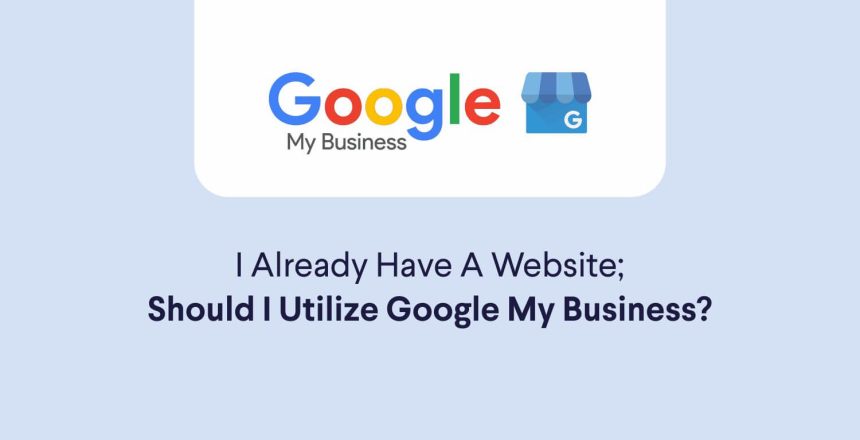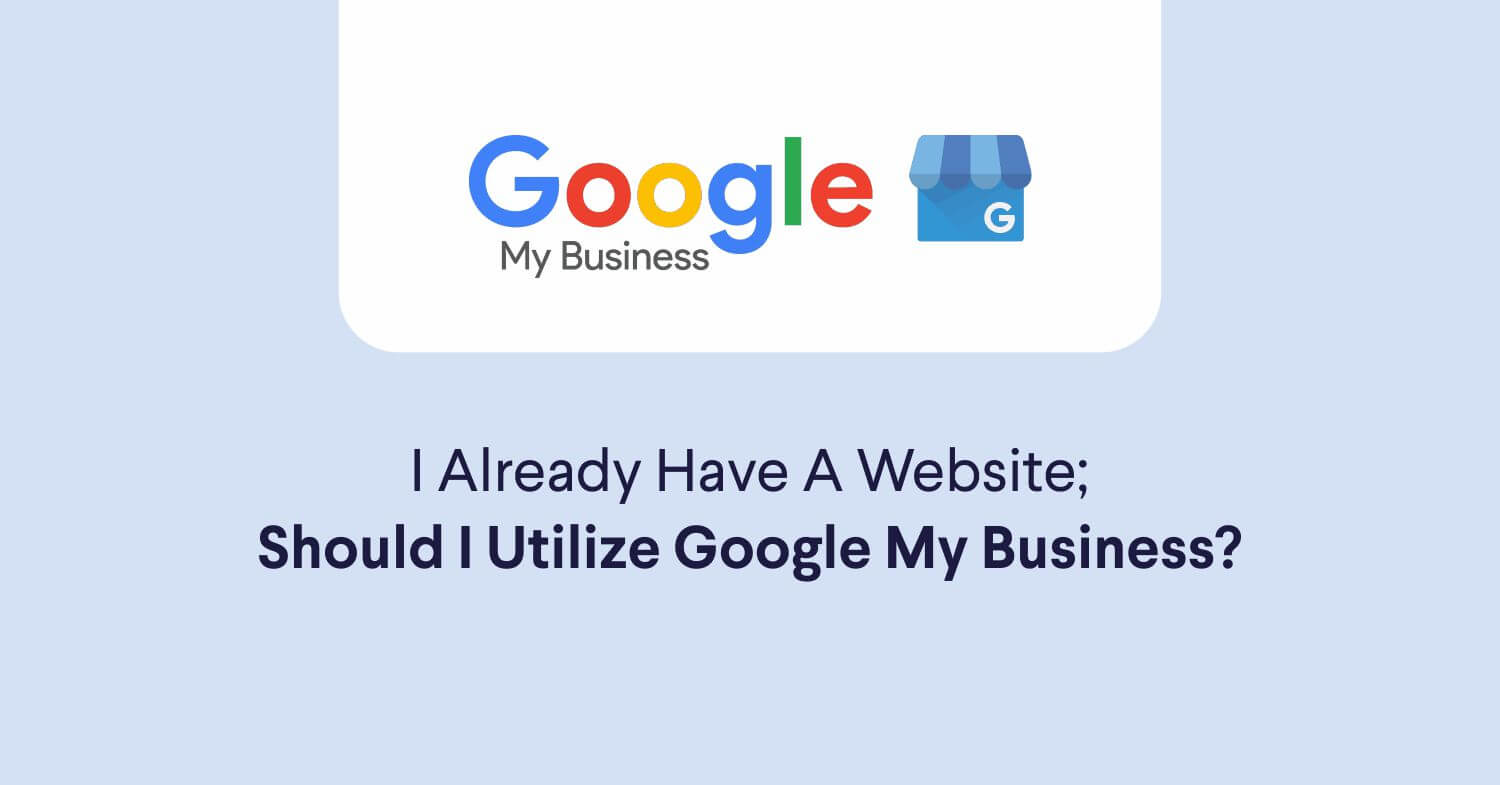For small business owners, having an internet presence has never been easier or more crucial. But one query we frequently encounter is “Does my small business need a website or can I get by with just a Google My Business listing?”
Despite the fact that small business owners are busy and want to simplify their marketing as much as possible, you still need a website.
Here are seven reasons why having a website is essential to the success of small businesses:
1. Customers Expect Small Businesses to Have a Website.
It’s year 2022 and going to 2023, having a website for your business is as basic as having a phone number. According to one study, 70% of consumers believe having a website is essential for a small business. According to another study, 30% of people will not even consider doing business with a company that does not have a website. Another study discovered that 68% of consumers believe that every small business should have a blog, not only a website.
People are accustomed to using the Internet to learn more about companies that interest them. A personalized website gives your customers a glimpse into your business before they even walk into your store. The website for your small business can include multimedia, promote items, tell stories, link to your social media accounts, provide contact information, schedule appointment, etc. Your website can be whatever you want.
Customer expectations are important. Because without a website, some people won’t see it at all.
70% of consumers find it important for a small business to have a website.
Consider including high-quality images and video, testimonials, employee profiles, and your company’s history on your site so your customers get a sense of authenticity to your brand.
2. Having a Website Gives You a Competitive Advantage
A website is used by slightly more than half of all small businesses. If you don’t have a website but your competition does, a potential consumer can go to their site and learn practically everything they need to know.
The prospective consumer will be able to read their thorough “About Us” page and see a video from the owner on your competitor’s website. The customer can subscribe to your competitor’s newsletter or read testimonials. They may be able to fill out a contact form, arrange an appointment, or determine the cost of a specific service. They might even make a purchase.
On your competitor’s site, they’ll be able to accomplish all of that and more. If you only have a Google My Business listing, you will miss out on all of the wonderful opportunities to serve and satisfy your consumers. Not to mention the option of collecting their contact information in order to stay in touch and encourage subsequent visits.
3. It’s Easy to Set Up a Simple Website
Even a few years ago, the process of creating a website was far more difficult than it is today. You’d need to employ a designer and a coder, as well as figure out how to buy a domain, point that domain to a server, set up and maintain security, and so on. Nowadays, if you can handle something as complicated as filing your taxes, creating your own website is a piece of cake.
If you don’t require a complex site, a website builder is definitely the best option for your small business. Website builders are simple to use and will help you develop a site rapidly. It allows you to drag and drop text and images into templates, eliminating the need for scripting. Some website builders provide a domain name, hosting, and other bonuses for a cheap monthly charge, making them budget-friendly as well.
Google made it simple to get GMB listings, but creating your own website is just as simple. You already have the elements of a website if you have all of the information and photos you needed to create your listing.
4. A website Serves as a Central Hub for All of Your Marketing Efforts.
Google My Business, a Facebook page, Instagram, Twitter (and other social media accounts), business listings, and other elements are likely to be part of your internet approach. However, it is critical that all of your endeavors are linked to a single official hub: your website. Your marketing tactics are ineffective if you do not have a website. There is no single location where you have complete control over the appearance and feel of your brand, as well as its voice.
This also applies to your offline marketing initiatives. Everything your customers interact with should include your website, from business cards to brochures to in-store materials and more. If customers want to return for more information, provide a central location for them to do so. All routes should lead back home!
Keep your website up to date with essential content and share it with all of your online businesses (Google My Business, Facebook, Instagram, business listings, etc). Use the places where your brand is visible to direct consumers to your website for the full brand experience. Typos should be avoided, especially on printed materials, as they can be costly to replace.
5. You Do Not Have Complete Control Over Google Google Does My Business Listing
Google My Business listings serve as a central location for collecting and managing reviews, adding your business to Google Maps, and assisting customers in learning critical information about your company. Without a doubt, Google My Business listings are an excellent resource for small businesses. We strongly advise you to create your own listing and optimize it to its full potential.
However, Google has a lengthy history of “changing” some of its products on the fly. Any local SEO expert will tell you that Google is continually modifying which aspects appear in search results, including how the Google my Business listing program is administered.
Google also maintains the right to remove your Google My Business listing if they uncover something in your profile that they don’t like. That is unlikely if you follow the guidelines, but it can happen, and it can be disastrous for a small firm. Furthermore, your competitors may modify your Google My Business listing, which is an apparent concern to keep in mind and monitor.
So, as wonderful as the Google My Business program is, keep in mind that you do not have complete control over your Google My Business listing. Google certainly does.
6. Google My Business is not used by everyone.
While Google My Business is a quick and easy way to gather crucial information about a business (especially on mobile), clients occasionally desire more information before making a decision. Customers will not be able to discover more about your company if you do not have a website.
While Google has the majority of the search engine market share, other popular search engines such as Bing cannot be dismissed. A properly optimized website can appear on multiple search engines, but a Google My Business listing will only appear on Google.
There are also additional business listings that you can utilize. Make sure your relevant business directories are listed, and that your information is accurate and up to date.
7. A website can accomplish far more than a Google My Business listing.
Google My Business listings are limited to the fields provided by Google and are not entirely editable. A website allows you to do almost whatever you desire. Even drag and drop website layouts are adaptable and can express all of the distinct aspects of your business in ways that a GMB listing cannot.
Websites provide useful features that might help your business develop. Here are a few examples:
- Newsletter subscriptions
- Specific business information
- Purchases made directly
- Scheduling appointments
- Submission of a job application
- Personalized multimedia
- Stories about businesses, founders, and employees
- Social media links
- Blog page
Takeaway: Together, we are stronger.
Google My Business listings are critical components of your complete web strategy. A website, on the other hand, is the central component of a successful plan and the glue that holds it all together. A website serves as the face of your brand and a direct channel of communication with your customers. It allows you to inform, excite, engage, and stay in touch with both new and old customers.
Building a website has never been easier or more economical. Customers demand it, and it provides you with a much-needed competitive advantage. To maximize your exposure and promote your business, use a website in conjunction with all of your marketing initiatives.



